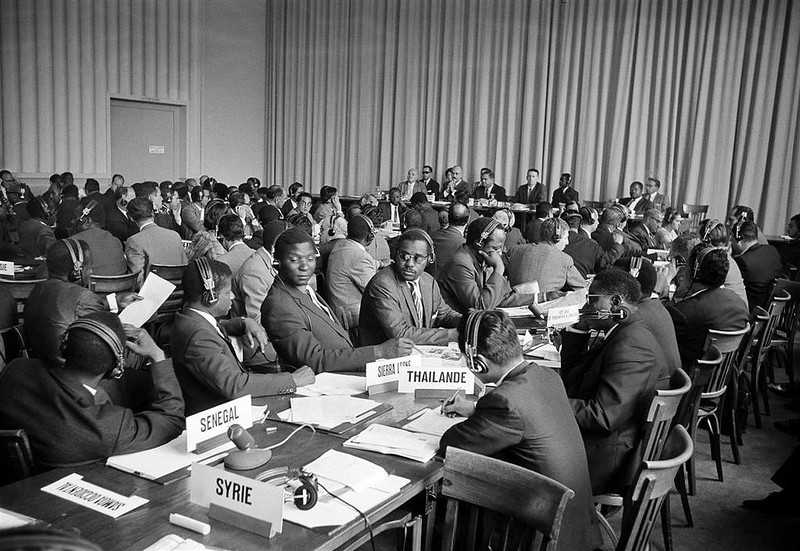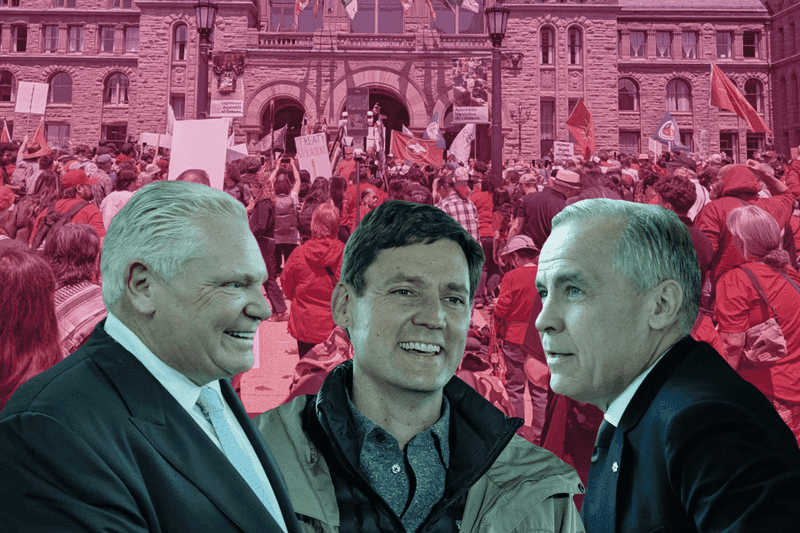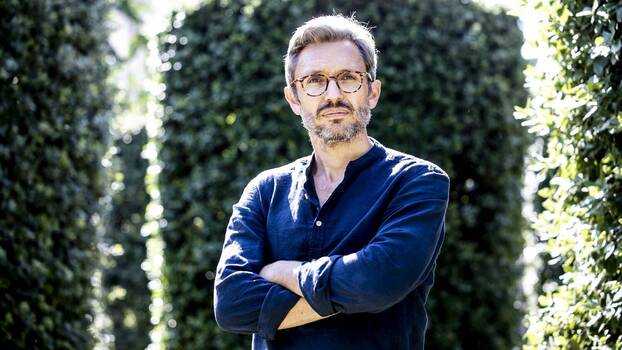
The pandemic has heightened the deep anxieties that characterize our shockingly unequal and perilously unstable world. At the same time, it has revealed the limits of the privatized governance structures put in place over the last four decades to manage the complexities and tensions of an interdependent global economy.
But despite the persistent failures of the neoliberal model exposed by the ongoing crisis and the massive economic and social damage hitting the global economy this year, recovering better is not a foregone conclusion.Indeed, there is every possibility, and already clear signs, that the priorities and interests that have prevailed under the rules and norms of a hyperglobalized system will emerge from this crisis relatively unscathed or possibly even stronger than before.
Connecting recovery to resilience and transformation means abandoning the idea that with incremental policy tweaks we can somehow maintain the current model of economic development, which has remained largely intact since the global financial crisis, and instead embracing a new model, derived from a set of shared principles different from those prevailing over recent decades, grounded in local circumstances and supported by a reconfigured multilateral architecture.
The rise of the rentiers
While economic thinkers stoked the neoliberal project, a liberated financial sector was its engine. Setting capital free from the constraints of regulation and oversight opened up an array of profitable opportunities for an energized banking (and shadow banking) sector, while a new set of trade rules (covering financial services, investment and intellectual property rights) extended greater protection to footloose capital.
Alan Greenspan, a one-time disciple of libertarian scribbler Ayn Rand, had no doubt that the expansion of cross-border finance, along with a new generation of innovative financial products, would turbocharge the global economy by improving the worldwide allocation of scarce capital, unbundling and dispersing risk and boosting hedging opportunities. This, he claimed, was Adam Smith’s invisible hand working at the international level: “unregulated global markets do clear,” he claimed, and “with rare exceptions, appear to move effortlessly from one state of equilibrium to another”.
Reality has not been kind to Mr. Greenspan’s vision. The dollar-based global financial monetary system has proven to be inherently unstable, as expansionary monetary policy in the US (and other advanced economies) creates surges of short-term capital flows into emerging markets, and contractionary policy creates sudden stops that trigger financial instability and crises.
Moreover, as financial markets have freed themselves from local regulatory oversight, cranked up the private credit-making machine and acquired global reach, banks have expanded in size and morphed into financial conglomerates. Footloose capital, with the help of new technologies, has moved production and investment around the world in an effort to squeeze costs and enhance its bargaining power over governments and workers. This augmented economic power has been further strengthened through new rules (regarding financial services, investment, intellectual property, etc.) in trade and investment treaties, which have only further reduced governments’ capacity to influence corporations to make decisions in line with local needs and policy goals.
A steadily declining share of wages in total income has been one consequence of these developments, while the accompanying turn to rent-seeking behavior— through investment mechanisms designed to capture the income of others — has given rise to a short-term (often speculative) outlook focused on buying and selling existing assets rather than a more patient commitment to productive capital accumulation through which returns rely on raising productivity over the longer term. At the same time, persistent cost-cutting and wage repression, along with high levels of volatility, have worked against a wider culture of creativity and innovation, while a general shortage of aggregate demand has led to wasted resources and held back potential growth (with the exception of a handful of export-led economies able to feed off the resulting global imbalances).
No future
In 2008, the booms and busts peppering the hyperglobalized economic landscape culminated in the deepest economic crisis since the 1930s, revealing the darker side of a world driven by private credit creation, under-regulated banks and financial chicanery. The recovery from that crisis has been weak and uneven, adding to social divisions, polarizing political positions and heightening people’s anxieties. Darker still, and deeply troubling for future generations’ prospects, the short-term calculus of cost-cutting and rent-seeking has extended to the relation between people and the planet.
Some of our efforts to control and direct nature have produced unmeasurable improvements in our overall well-being. But that effort has often contained a darker side, giving rise to punctuated episodes of abuse that have stretched the limits of our relationship with the natural world in damaging ways. The current pandemic reflects that darker side, but it has been made worse by the rise of a predatory economic model founded on disposable social relations, and by increasingly precarious communities fed by an agro-industrial complex which has extended extractive practices to the production and delivery of food.
This mixture has had a profound impact on environmental stability. In the much of the world, the rush by some groups to exploit new sources of carbon-based energy, the greater intensity in the use of land, forests and water, and changing consumption patterns have profoundly altered the relationship with nature to one of exploitation in support of maximum profits. The resulting rise in global temperatures has captured the headlines as the scientific evidence of its damaging consequences mounts. But the threats to a habitable planet extend well beyond a warming world and include dying oceans, unbreathable air and the threat of deadly pandemics.
Too little . . .
There are efforts underway at local and national levels to advance more sustainable development practices. Parliaments from the United Kingdom to the Maldives have declared a climate emergency.And around the world there is increasing demand for a Green New Deal, with the South Korean government overwhelmingly reelected on just such a commitment.At a more local scale, communities in Niger have adopted a Farmer-Managed Natural Regeneration program, a low-cost land restoration scheme that increases climate-resilient food and timber production to reduce poverty and hunger among poor subsistence farmers. The city of Helsinki has enacted a participatory development program aimed at increasing openness and transparency in urban infrastructure and planning.
Some of the big G-20 countries have also made progress. Even as the Trump administration was making good on its promise to withdraw from the Paris climate agreement, others, like China, Germany, and the UK were advancing plans to phase out fossil fuels, invest in clean technologies and introduce green industrial policies. Organised labour has begun to put flesh on the bones of a just transition: the International Trade Union Confederation has endorsed the idea, while labour unions from Brazil to South Africa to Australia have put forward concrete programs.
But without concerted global action, the massive investment push and structural transformation necessary to achieve these shared goals will fail to materialize. That means the multilateral finance, trade, and investment regimes must be aligned with a transformative agenda. But at this level money does the talking, governments seem to quickly lose their voice, and tapping the hearts, minds and wallets of the moneyed elite — whether through a sense of corporate social responsibility or impact investment or financial innovation — is deemed the only way to deliver the big investment projects required for a more inclusive and sustainable future.
This is not only wishful thinking; it is, if history is any guide, a recipe for making the world unfairer, unsustainable and possibly uninhabitable. The way to deliver the public goods and policies we need to build a healthy, inclusive and sustainable future is to create a properly funded and democratically accountable public realm at the global as well as the national level.
. . . but still not too late
A recent report by the World Resources Institute suggests multilateral development banks (MDBs) and other development finance institutions across the world have begun to move in the right direction. This includes even larger networks of sub-regional and national development banks such as the China Development Bank, Development Bank of South Africa, the KfW of Germany, the Brazilian National Development Bank, and the AfD of France. Institutions like these have formed the International Development Finance Club (IDFC) and have also officially committed to align their financing with the Paris Agreement. Last year IDFC members provided $200 billion in climate finance.
These efforts are encouraging. Still, $235 billion is just 3 percent of the more than $7 trillion needed annually in sustainable infrastructure financing needed to align with the UN Sustainable Development Goals and Paris alone. Development finance institutions have been trying to leverage their balance sheets to bring in the private sector, but the results speak for themselves: catalyzing at most $60 billion per year, with hardly anything flowing to the least developed countries. Moreover, there is concern that these banks are taking on the big risks so that private firms can come in and cherry-pick the most lucrative projects.
While the development finance institutions are beginning to discriminate against dirty industry, the system of trade and investment treaties continues to lead us in the opposite direction. Rather than ultra-high tariffs and investment restrictions on fossil fuels and highly monopolistic industries, countries can incur significant damages for enacting policies or supporting sectors that even hint at threatening the incumbency of these industries of yesteryear.
The development finance community’s inkling of ambition has also been hampered by a lack of alignment in the international financial system. Emerging market and developing countries are sitting on $6 trillion in dollar reserves that could be invested in the global green transition. Their decision is not irrational under existing arrangements. Developing countries are wary of going to the IMF for help, given their lack of voice in the institution and its tendency to prescribe remedies that make matters worse, not better. Instead, the structure of global development finance ensures that the developing world hordes hard-earned savings to protect their economies from instability rather than invest in a sustainable and inclusive future.
A roadmap
The multilateral system will need deep transformation in all areas if it is to become fit to deliver on the promise of a global Green New Deal. Covid-19 has helped clear away at least some of the ideological rubble blocking the route to a better international economic regime; what we need now are the wild dreamers to carry through on the promise of building a better world.
We might start with tasking the IMF to reduce speculative financial flows, focusing its research and oversight capacities to support productive, low-carbon investments — including but not limited to monitoring and eliminating misguided subsidies and illicit financial flows and backstopping an internationally coordinated policy package of redistribution, fiscal expansion and state-led investment.
When crises like Covid-19 do occur, the policy response should be counter-cyclical and inclusive, not obsessed with austerity, which only exacerbates social division. Appropriate management of global liquidity through the allocation of Special Drawing Rights is one way the IMF can make a quick and positive contribution to economic stability; although its short-term lending instruments continue to suffer from misguided policy conditionalities which must change, this is not the case with SDRs.
An important part of the original model of Bretton Woods was a world economy free from disruptive flows of speculative capital. Paradoxically, as such flows became more widespread and more disruptive, policy-makers became less willing to use capital controls for both ideological (presumed distortions) and pragmatic (fear of free-riding) reasons. In fact, such controls can be effective tools for altering the composition of flows to ensure a closer match between gross external assets and liabilities, as well as for counter-cyclical management. National legislation, with appropriate international support and coordination providing for comprehensive capital controls when needed, especially during surges of capital inflows, will be essential for establishing the right kind of investment climate for a global green new deal.
For many emerging economies, the pressures from servicing their external debts hinder them from mobilizing resources for productive investment. When disaster strikes — as at this very moment — the hope of a transition to a more sustainable and inclusive growth path quickly evaporates. Debt, in all its dimensions, has exploded under the lopsided rules of hyperglobalization, as has the distress that comes from unsustainable levels of debt. That was clearly apparent before the Covid-19 crisis, but the pandemic has revived discussions about finding fairer and faster responses to the debt problem. In truth, a multilateral mechanism for restructuring sovereign debt is essential to any plan for recovering better post-Covid-19.
Developing countries have long complained about limited multilateral support for their long-term financing needs. This is even more apparent when it comes to the big investment push necessary for a more resilient future. Public banking institutions, including central banks, are the key to success at both national and international levels. Whether or not existing multilateral institutions are the right vehicles to support that investment push, the undue influence of credit rating agencies must be addressed if the required scaling-up of resources is to take place.
Development banks across the world, at the national and global level, will need to work together to help countries identify low-carbon, high productivity activities, and design appropriate industrial policies to scale-up their resources in sustainable infrastructure and to support a just transition for workers and communities attached to carbon-intensive and outdated economic activity. The capital injection these banks need could come from recovered illicit financial flows, including from clampdowns on tax avoidance by transnational corporations and high-wealth individuals.
The required reforms go beyond the financial system. Trade ministers should work to introduce reforms to the WTO and the myriad treaties to accelerate trade and investment in net-zero carbon economic activity, to eliminate incentives for trade and investment in sectors in need of phase out, and to remove obstacles to green industrial policies for full employment at living wages. And they should do so in full knowledge that developing countries face specific challenges that will need differential support and sufficient policy space.
At a moment like this — when world leaders are scrambling for solutions to the pandemic — it is essential to reiterate: we have no time left to delay our efforts to affect a drastic reduction in carbon emissions and reduce the obscene levels of inequality that have been hard-wired into the rules of hyperglobalization. The increase in climate-related catastrophes, in social unrest, and in the rise of right-wing populism are early warnings of what will become a new normal. Even as the United States has forsaken its leadership role, it is up to committed governments around the world — and the international movement supported by this Progressive International — to respond to “the fierce urgency of now”.





